The concept of a polarized lens was first invented in 1936 by Edwin Land, who would design the Land Camera for the Polaroid Company. Polarized lenses first started showing up in eyewear around 1937 and were initially used by military pilots to reduce glare and increase visibility while flying.
Since being introduced, polarized lenses have gained a strong following in the sporting optics industry. They are extremely popular for outdoor activities like fishing, skiing, and hiking. However, one of the questions I see being routinely asked about polarized lenses is this: should shooting glasses be polarized?
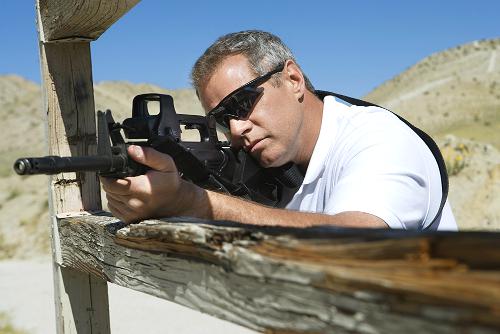
While protective eyewear should be mandatory for all types of shooting, the discussion of polarized lenses isn’t an easy yes or no as the answer is a bit more complicated.
Before I answer that question, here are a few other topics to understand about polarized lenses.
What Are Polarized Lenses?
Like I mentioned before, polarized lenses were invented in 1936 when inventor Edwin H. Land added another filter option to his patented Polaroid filter. Testing indicated that this new filter did an excellent job of reducing glare from surfaces like water, sand, and other organic reflective substances. That filter was integrated into lenses and marketed as the first pair of polarized glasses. Those glasses were called the Polaroid Day Glasses, and there were a significant profit source for the Polaroid Company.
Light travels in waves, and we human beings can perceive objects around us as waves of light bounce off those objects. Usually, when sunlight bounces off uneven objects, it reflects in several directions. However, when light bounces off a smooth surface like water or snow, most of it goes in one direction, which is typically horizontally. This creates a light overload of sorts humans perceive as “glare.”
The polarization filter built into polarized lenses helps block light traveling horizontally but allows light traveling vertically to pass through.
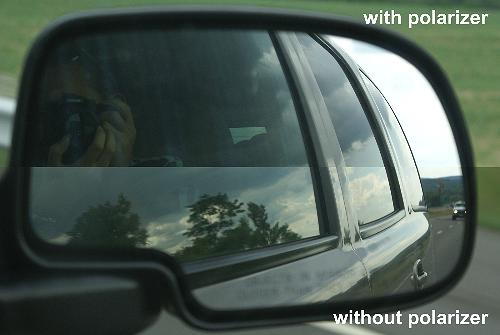
By Sbittante at English Wikipedia, CC BY-SA 3.0
https://commons.wikimedia.org/w/index.php?curid=11516199
A picture is worth a thousand words, so check out this image from wikipedia as an example of an image seen through a polarized filter compared to a non-polarized filter.
In the image above, the portion of the window with polarization applied shows a significant reduction in glare, and the photographer can be seen through the window.
What are the Advantages of Polarized Shooting Glasses?
If you spend any time shooting or hunting outdoors, then a pair of polarized shooting glasses may be a worthwhile investment. The polarized filter on the lenses significantly reduces the glare that occurs from light reflecting off almost any smooth surface.
For general shooting or target shooting, the reduction in glare means you see a brighter, more clear sight picture, coupled with a more concise downrange target.
And, building on a sort of trickle-down effect, the brighter, more clear sight picture also means that a shooter may experience faster target acquisition and a quicker transition between targets. I’ve seen a noticeable benefit with polarized shooting glasses when shooting skeet or sporting clays during bright sunny days.
For hunters, the polarized lenses can offer the same benefits on bright, sunny days. However, polarized lenses may not always be a great choice when hunting, and I’ll get more in-depth on that topic below.
What are the Disadvantages of Shooting Glasses with Polarized Lenses?
There are a few scenarios where having polarized lenses on a set of shooting glasses is not beneficial and may be a detriment, including the following:
With Technology
Unfortunately, polarized lenses and technology don’t work all that well together. For some reason, the polarization filter can interfere with how your eyes perceive LCD and LED screens or monitors. So, if you are using a shooting-based or range assisting application on your phone or an RMR optic, then polarized lenses may not be an ideal option.
Low light Situations
Most polarized lens coatings work best with darker tinted lenses, which may not be the optimal solution for shooting or hunting in low-light scenarios. This includes scenarios such as:
- Dimly lit indoor ranges
- Night shooting
- Hunting situations at dusk or dawn
In these types of shooting situations, having non-polarized lenses is a better option as the polarization feature offers no benefit.
Do Polarized Shooting Glasses Make Sense for You?
When this question comes up at my day job, I usually provide the following answers:
- If you spend time shooting at an outdoor range, then polarized shooting eyewear is a good option.
- If you spend the bulk of your time shooting at an indoor range, then I’d skip the polarized lenses.
- If you’re a hunter, and hunt game during the bright daylight hours (Like prairie dogs, for example), then the polarized option might be worthwhile.
- If you’re a hunter who hunts species like deer, who are most active at dawn and dusk, then the polarized glasses probably aren’t much value for you.
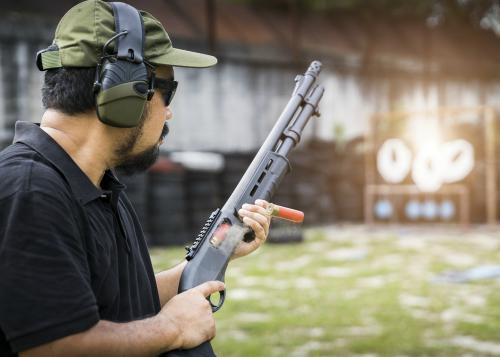
Here are some frequently asked questions that I see regarding polarized shooting eyewear:
Do polarized protective glasses also offer any UV protection?
It is essential to understand that the polarization process applied to shooting glasses lenses does NOT offer any UV protection. This means that not all shooting eyewear with polarized lenses also provides UV protection.
If you are interested in shooting glasses that are both polarized and UV filtering, then you’ll need to ensure that you purchase a brand or style that is marked as having both of those coatings applied. Ideally, you’d want protective glasses that off 100% UV protection, including protection from UVA, UVB, and UVC variants of the sun’s rays.
Do polarized shooting glasses cost more than non-polarized models?
The answer relay depends on several factors, including:
- Brand of glasses
- Glasses features
- Type of shooting glasses – Actual glasses versus goggles
However, if you compared the same specific model of shooting glasses, the polarization feature usually costs slightly more than a non-polarized model.
How can I tell if shooting glasses are polarized or not?
There are a few different ways to figure out if a pair of shooting glasses features polarized lenses:
- The glasses are marked as being polarized and come from a reputable brand.
- If you hold the glasses up to a computer screen and slowly rotate the lenses, you should see a point where none of the computer screen can be viewed through the lens.
- With the glasses in question on your face, look at a reflective light source (water, black asphalt, etc.). As you look at the source, begin to tilt your head sideway to a 60-degree angle slowly. If the reflected light does not change, then the lenses are not polarized. If the reflected begins to become brighter as you move, then the lenses are polarized.

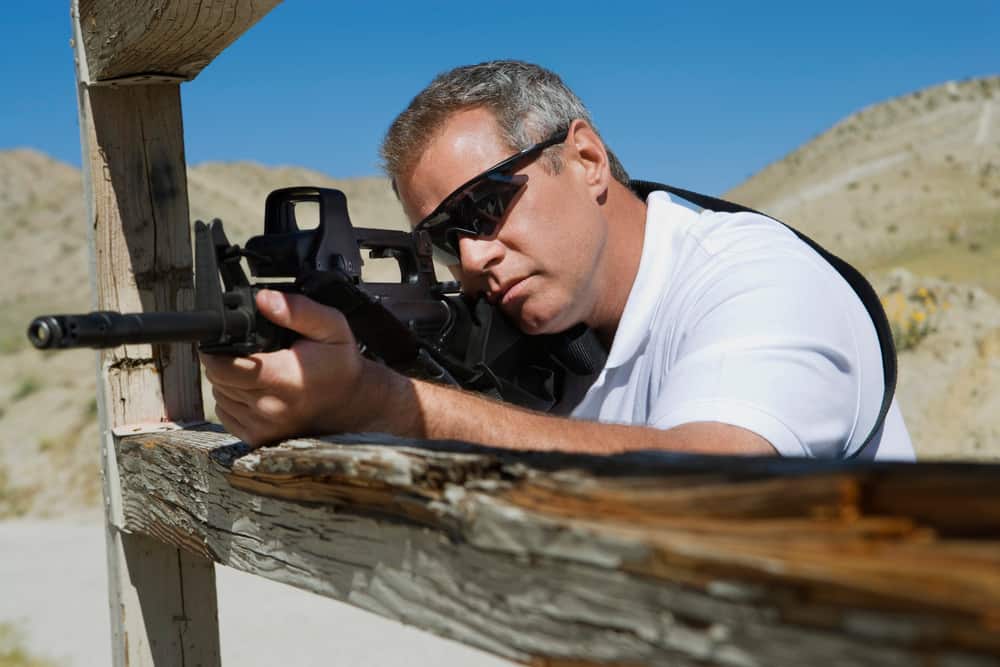
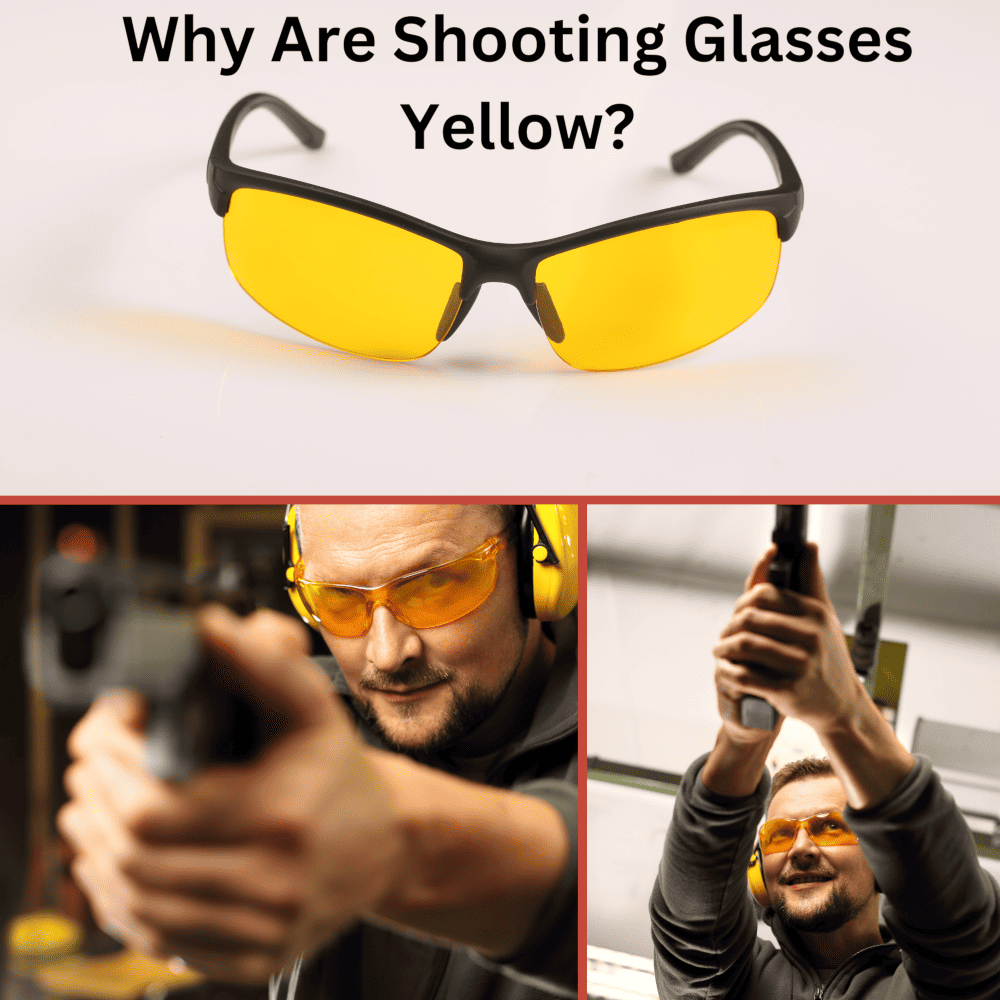
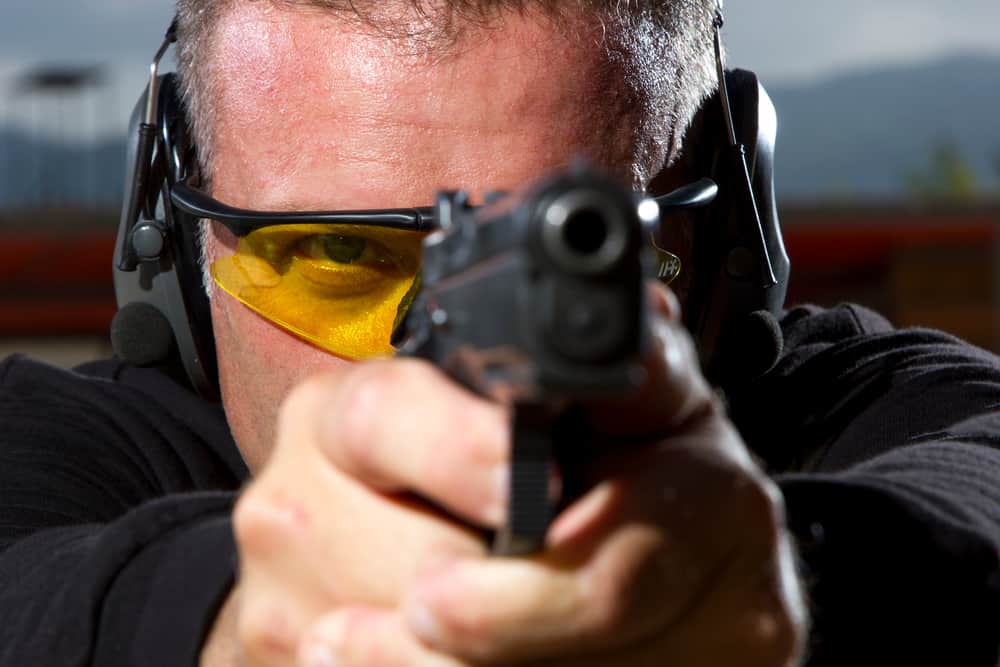
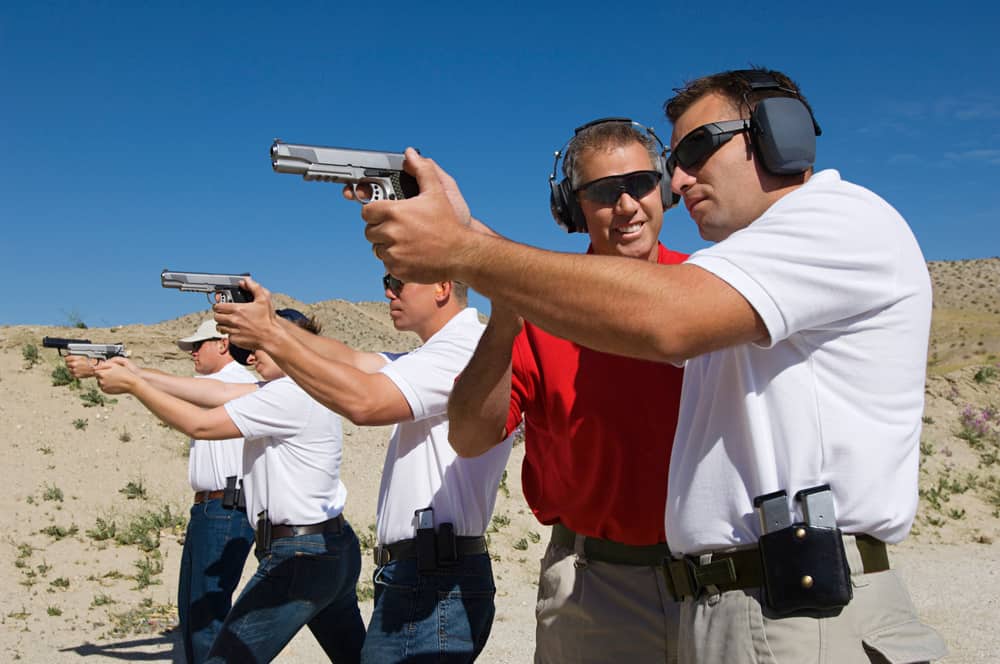
One response to “Should Shooting Glasses be Polarized?”
[…] Should shooting glasses be polarized and offer UV protection? […]